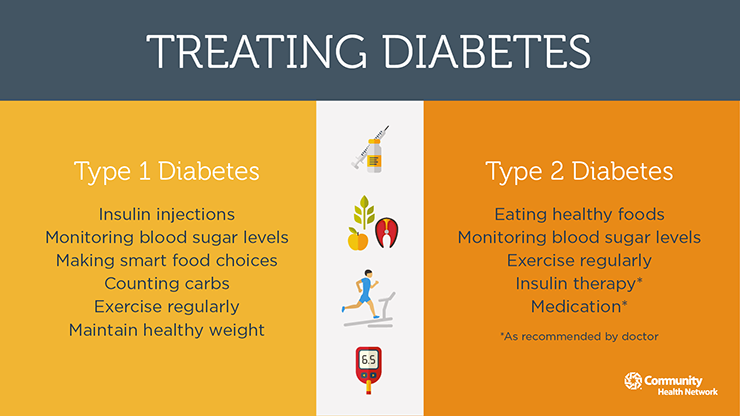According to a study by the Journal of the American Medical Association (JAMA), about 50 percent of U.S. adults have been diagnosed with diabetes or pre-diabetes, which puts them at high risk for developing type 2 diabetes.

Diabetes causes blood glucose (sugar) levels in the body to rise higher than normal levels. Type 2 diabetes is the most common form of diabetes. If you have type 2 diabetes your body does not use insulin properly. This is called insulin resistance. Over time the pancreas isn't able to produce enough insulin keep your blood glucose at normal levels.
But, pre-diabetes does not need to develop into diabetes. By practicing healthy habits, diabetes can be prevented.
Exercise Regularly
Sedentary lifestyles contribute to chronic diseases like diabetes. Exercise can help you lose excess weight, control your blood sugar, and boost your sensitivity to insulin, which helps keep your blood sugar within a normal range. Aim to get at least two and a half hours of physical activity per week, if not more.
Eat Fiber
Fiber-rich diets improve blood-sugar control, lower heart disease risk, and promote weight loss by helping the body feel fuller faster. Foods high in fiber include fruits, vegetables, whole grains, nuts and beans.
Say Yes to Whole Grains
Whole grains have been shown to reduce diabetes risk and help maintain blood sugar levels. Aim to make at least half of the grains you consume whole grains.
See Your Doctor
Talk to your doctor about your risk for diabetes and determine if a blood glucose screening is right for you. The American Diabetes Association recommends blood glucose screening for those 45 or older and overweight, or for those under age 45 who are overweight with one or more additional risk factors for type 2 diabetes — such as a sedentary lifestyle or a family history of diabetes.
It's easy to start a conversation with your doctor. Begin by taking a health risk assessment. Then, discuss your results with your primary care doctor.
Start Diabetes HRA
Don't have a primary care doctor? Use our Find A Doc tool to read patient reviews, watch interviews, and select an exceptional doctor who fits your unique needs.
Find A Doc

